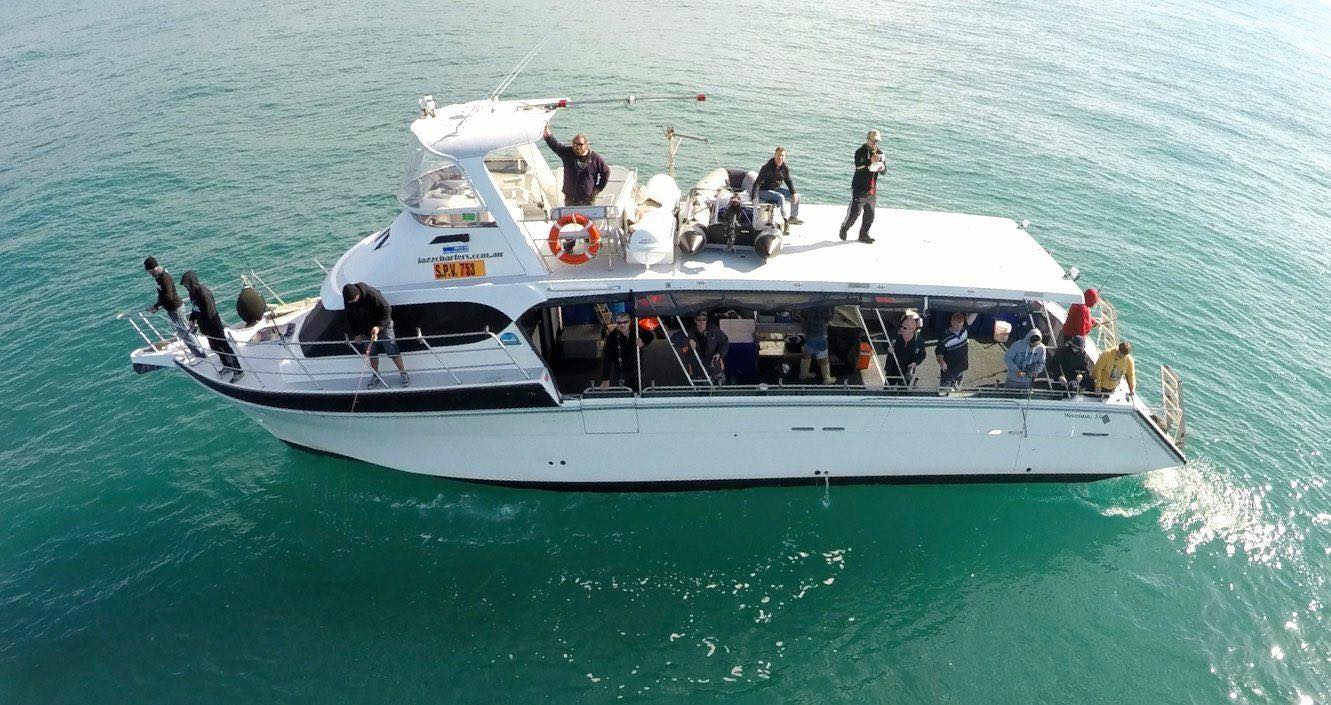The drastic cut

Recreational fishing charter operators believe they are doomed under new management guidelines around key demersal species such as dhufish and pink snapper.
There was high tension at a meeting between charter operators and Fisheries, during which proposals aimed at slashing the charter take of demersal fish in the West Coast Bioregion to just 20 tonnes per year were discussed.
The meeting was held at the Fisheries office in Hillarys and those present were very disappointed there was no representative from Fisheries Minister Don Punch’s office in attendance.
The drastic cut in charter take, which will be controlled by tags, is part of the tightening of rules around demersal species that has also seen the recreational angling closed season for these fish tripled by Minister Punch.
For many anglers without their own boats, charters offer the chance to target prized offshore species like dhuies and pinkies that they wouldn’t otherwise be able to catch.
There are many well-known charter operations affected and Drew Clowes, owner of Perth-based Jazz Charters, said he was expected to cut his take by up to 85 per cent, which threatens the future of his business.
Around 20 charter operators attended the three-hour meeting at Fisheries and Clowes said it was a hostile atmosphere.
“The feedback from the meeting was that this isn’t going to float, it’s not going to work,” he said.
“We can’t manage our businesses with these limitations, we are dead in the water.”
Originally told they would be given some information on new management in February, the charter operators only received the information via the discussion paper outlining the plans in mid-April.
The new rules are expected to come in from July 1, and Clowes said businesses were only given a few weeks to react.
“It feels very rushed,” he said.
“It has been delayed, there is a lack of time to respond and there has been a lack of clarity until the last minute.
“They want me to reinvent my business but the time frame is not long enough.”
Under the proposed new rules, Jazz Charters would likely be limited to around 300-400 tags per year, or just 6-8 per week.
Clowes said he’d spent a decade building up a business that was now basically worthless.
Each operator can claim $25,000 from the government to help them pivot under the new rules, but they also have to match that cash injection themselves dollar for dollar.
At the meeting, the charter representatives recommended changes be delated until 2024, and called for a buyback system for operators who wish to leave the industry.
They also recommended commercial quota be purchased and reallocated, and queried why nothing was being down about the ever-rising problem of shark depredation.
They also sought more clarity around how the tag system would work, including the ability to trade allocation and whether they might carry over to the following year if not used.
Clowes is a keen recreational fisher in his spare time and said it felt like death by a thousand cuts for the pastime in WA, with so many new rules, expanded marine parks and many other issues such as loss of access.
Image caption: Charter operators like Jazz are upset with new rules around demersal species, which they say threaten their futures.


